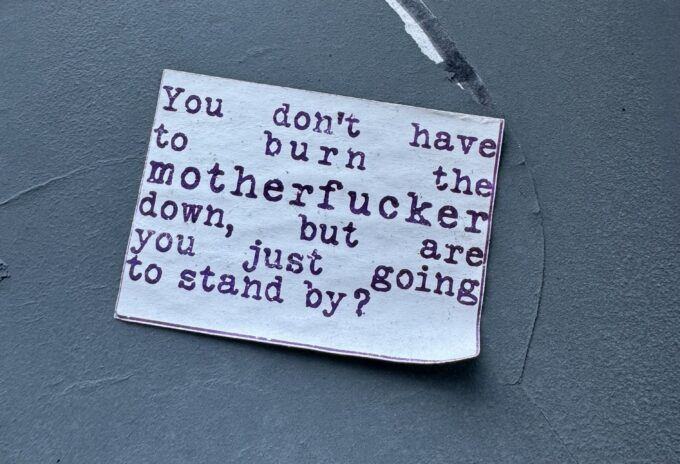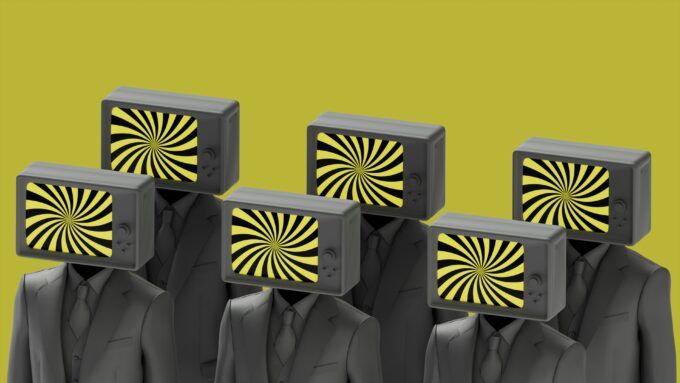
Resolutions and …
Published on http://www.counterpunch.org
In sociology and economics, the precariat (/prɪˈkɛəriət/) is a social class formed by people suffering from precarity, which is a condition of existence without predictability or security, affecting material or psychological welfare. The term is a portmanteau obtained by merging precarious with proletariat.
– Wikipedia
Here are some New Year resolutions, individual and on behalf of society and the planet, vital and quaint, I have come up with as deterrents to societal incivility and downright hostilities to mitigation of global warming:
–not to use plastic bags and plastic wrap, and curse Styrofoam’s existence;
— trade fossil fuel stocks for alternative energy stocks;
— compost the organic waste and keep a vegetable and bee loving flower garden;
— don’t drive a vehicle with an internal combustion engine;
— lay rail track down for passenger trains on all Interstate highways;
— stop watering lawns in the Southwest;
— use a bicycle if you must travel less than ten miles to shop;
— shop at Whole Foods when you see people of all colors shopping there;
— read long narratives with many characters and many ideas floating like balloons;
— read them to your kids;
— send your kid to the local public schools;
— take public transportation;
— look up from your phone when talking to a neighbor, or a stranger;
— don’t place your cell phone beside your dinner plate;
— vote for people who put the mitigation of global warming at the top of their agenda;
— unionize gig economy employees;
— buy from employee owned enterprises;
— march against long term renters being kicked out by Airbnb exploiters;
— keep a vegetable garden;
— get profit out of pharmaceuticals, education, prisons, clean water, and war.
Fallen as we are into all manner of tribal allegiances these resolutions can be variously dismissed as quirky, idiosyncratic, unreasonable, gentrified favoring, archaic, analog, not representative of national diversity, obnoxious, too Liberal, too Green, too socialist, too mindless of God, Guns and Gays, suppressive, patriarchal, insufficiently post-truth, more than 280 characters, non-Millennial, stuffy and conservative, trivial, ridiculous, unnecessary, arbitrary, fake news, strange, and decidedly anti-“free to choose” and “free enterprise.”
Most of them, however faulted they may be, would be difficult for most to oblige.
For instance, if you’re working two jobs and your partner is working two jobs and you have at least two kids and therefore don’t have any time to read the above resolutions no less follow them, it doesn’t matter if they’re oddball resolutions or you might like to follow them if you were at liberty to do so. The state of the American precariat class is overloaded with directives, coming from both within and without, demands placed upon them that they cannot fulfill. Relief, perhaps distractions that are easy and costless, immediate and without requirements, seem preferable to yet more imperatives as to what ought to be done.
Alongside these feeling of angst, anomie and collapse of basic trust, a kind of despairing nihilism, there is a relief that comes with all assaults flung at an Invisible Tyranny darkening the precariat existence. It seems clear by now that Donald J. Trump provides such relief in a way that Mr. Biden, for instance, does not. The precariat is way past following an old man back to a past that is like revisiting the scene of the crime.
Maybe the gentrified, meritocratic and dividend recipient, leisure class elite will read and follow the resolutions. Maybe this elite class will do the global warming mitigation for all of us, including the precariat class. Perhaps a wealth class can replace and represent the remaining 80% of the population in the climate change arena, just as their financial success does so much for the rest of us economically.
Some of these resolutions, however, require that the top 20% would have to consume at Spartan levels. If they do have to do that, what good is it having a lot of money? It’s a good question, perhaps not good in a global warming mitigating sense, but sensible in a capitalist way.
Realistically, however, one wonders what the benefits to you are when moguls yacht around the Med, or add another gated compound to their collection, or spend a half million dollars to get their offspring into an Ivy League school? If they don’t use plastics etc. and 80% of the population does use plastics etc., is there an overall, national, societal, humankind benefit? And why, one asks yet again, would the monied class give up all the perks money can do for them? Why give up blue chip stocks, poisonous to the planet yet paying wonderful dividends because in say, forty years, or maybe twenty, or maybe by century’s end or really some indefinite time, the companies you own stocks in will have destroyed human habitation on the planet Earth?
It seems that money itself, earned and possessed in planet and people destroying ways and not possessed sufficiently by those suffering from the condition of precarity, and the economic system that structures this condition is a grounding obstacle to fulfilling our resolutions to save ourselves and a planet on which we humans can continue to live.
II. Obstacles
The resolutions are difficult to follow given we have embedded as cultural memes:
Growing the economy at the expense of a habitable planet;
Applying diversity as a sine qua non requirement for all institutions and enterprises;
Seeking direct democracy through cyberspace representation, or enabled by cyberspace;
Accepting technology as intrinsically beneficial to people and planet, and its leaders as magister ludi.
The growth of profit as the only form of growth homo sapien sapien should care about has become a fatal obstacle to fulfilling our resolutions. We have in this obstructed our own understanding of the plight we are in.
If we put work and workers before profit and profiteers, we are not eliminating either work or livable wage. Worker owned enterprises, like Mondragon in Basque Spain, pay salaries, split profits and invest in other start-up worker owned enterprises. There is no law that says only a shareholder economy enables an electoral democracy. Every member of a worker co-operative can vote and uphold democratic principles. Such an economic situation, in fact, preempts the establishment of a plutocratic order in which a precariat class is one result and a “creative destruction” of the planet another. Rather than being pressured to increase profits to shareholders, worker cooperatives coordinate profit and worker quality of life as well as the environment in which workers live. There is no such relationship between profit and consequences other than increased dividends in a shareholder world.
The question of diversity, of all manner, is itself crucial to the capacity of a culture and the societal and government order emerging from that culture to unite in saving a human habitable planet. Right now, no such unity exists, divided as we are on the issue of diversity itself. Having a president who tweets divisiveness by rallying some of the population to arm itself against others he declares as enemies is certainly an obstacle to achieving the unity of purpose we need currently. A unity that can be achieved through, with or beyond diversity is challenged by a notion that diversity is destroying a unity achieved in the past. Both notions, oddly, vestiges of the Romantic age and both are problematic when it comes to creating a unified response to global warming and the economic system fueling it.
President Trump has led the Republican Party to a more open stand against diversity than they revealed prior to his presidency. Liberals and Progressives stand behind diversity to the degree that it has become a standard by which everything is to be measured. Trump is engaged in undermining the established view that a just society should represent all its people, regardless of their differences. He is using our courts of law and our legislation to confine equity and justice to a chosen identity, an identity that about 40% of Americans accept as privileged.
This is patently tyrannical and if continuing will destroy that republic Franklin urged us to keep well before we lose a habitable planet.
The view held by Liberals and Progressives that diversity is intrinsically beneficial to any order and therefore necessary to achieve the solidarity needed to save the planet has its own troubling issues. We have neither historical nor philosophical proof that the extreme diversity of knowing and ways of knowing alive in the country today lead to unity. We are divided on the issue of diversity itself.
For example, matters become arguable when public schools are selective based on entrance exams and not on proportional diversity representation. Denying public schools this selectivity would leave such selectivity to private schools who are selective not only in terms of test scores but income. You don’t pay six figures to go to Bronx High School of Science, or Brooklyn Tech, or Stuyvesant and so you are given a chance to advance not by money but by quality of mind. If, for instance, you went to the poor man’s Harvard, Brooklyn College, as Bernie Sanders did, before it moved to open admissions in 1970, you went there not because you couldn’t get into an Ivy – if all that mattered were grades and test scores — but because you couldn’t afford an Ivy. Selectivity in public education therefore is a way to foster social and economic mobility.
Why aren’t Blacks and Hispanics proportionally represented in the elite public schools? Ronald Reagan would have had to reverse his Voodoo economics and push wealth downward way back in 1980 for that proportionality to now exist. But he didn’t. And while Republicans push to keep the wealth divide, they enjoy in place, Democrats have lost themselves in dealing with symptoms and not the disease. Ironically, it’s Bernie Sanders who has his eye on grounding causation.
A few grounding issues:
Are mind and talent distributed, even in the best cultural conditions, in line with proportional levels of diversity? Is the notion of equality a narrative that a grossly unequal society needs? If such conditions supported all without prejudice and without any noticeable wealth divide, it seems that diversity itself would be, if not unnoted, no longer an issue. The ideal of equality erases by its very existence any recognition of difference. The reality opposing this ideal is that we do indeed see difference – check all human history — at the same time we are envisioning an ideal, which opposes it, but damn hard to see – check all human history.
Whether societies survive longest or achieve a stable order by being homogeneous rather than diverse, and whether diversity, brought to a certain level, is disruptive of a coherent, continuous order are disturbing and unresolved matters. What we can see all around us are blossoming differences, an increasing intense hostility to this and a vanishing vision of unity beyond all diversity. We are thus far from uniting behind any resolutions to regain our lost egalitarian vision as well as regain the conditions that make life on this planet habitable for us.
The short of the long on direct democracy through cyberspace: The People’s voice, vox populi, can be heard and read every Nano second on social media. Shouts of a rattled mob. President Trump’s 120 tweets in one day most likely hasn’t done much to give us a “direct democracy.” Our real world, fragile republic has now suddenly become so much harder to keep as a result of all this.
The short of the long regarding technology’s intrinsic beneficence: This is a question to be answered in the coming warming days, weeks, months and years. As far as the genius of Gates, Zuckerberg, Bezos, Musk and TED, read Einstein’s 1949 essay, “Why Socialism?” and ask yourself what tech genius mind now possesses such erudition beyond algorithms, such a philosophical habit of mind? There is an instrumentalizing of reason in cybertech that exceeds anything before, a kind of narrowness represented by 0/1 or Boolean algebra. I seriously doubt this will bring relief to the precariat or the planet.














